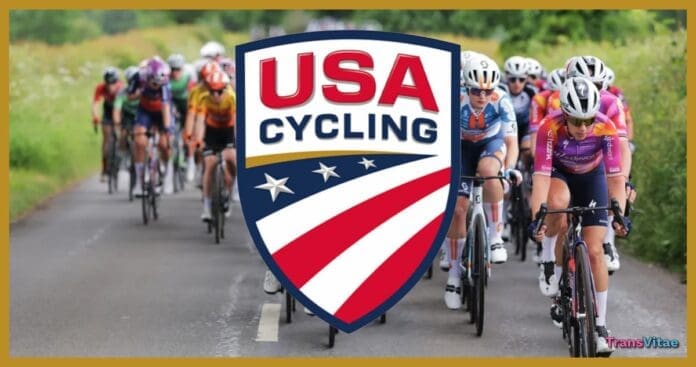USA Cycling has announced that beginning September 15, 2025, transgender women will no longer be eligible to compete in female categories at national-level events. The organization updated its Transgender Athlete Participation Policy to define eligibility strictly by sex assigned at birth, removing prior pathways based on hormone levels or gender identity declarations.
The change replaces a two-tiered system introduced in January 2024. Under the previous rules, transgender women competing in elite categories were required to maintain serum testosterone levels below 2.5 nmol/L for at least 24 months, while those in amateur or non-elite races could participate based on a signed declaration of gender identity.
USA Cycling stated that the update brings the organization into alignment with federal directives and the U.S. Olympic & Paralympic Committee (USOPC). In July, the USOPC adopted a policy barring transgender women from women’s sports after citing obligations under federal law, including the Ted Stevens Olympic & Amateur Sports Act. The policy shift also follows similar restrictions enacted by the NCAA and other U.S. sporting bodies in recent months.
Reactions have been divided. Some advocates of the change argue that it creates consistency and ensures competitive fairness in women’s cycling. Others see it as part of a broader trend of exclusion that reduces opportunities for transgender athletes. For many in the transgender community, the policy is another reminder of the increasing difficulty of accessing competitive spaces that align with their identity.
The issue came into sharper focus earlier this summer when a Wisconsin race drew headlines after a female competitor declined to share the podium with a transgender cyclist who had placed first. While that incident occurred under the former policy, which allowed participation with a declaration, USA Cycling’s new rules eliminate that option altogether.
For transgender cyclists, the update means losing access to the highest levels of women’s competition within USA Cycling events. While some may continue racing in open or men’s categories, advocates stress that those options are not equivalent, both in terms of visibility and personal affirmation.
As the September 15 effective date approaches, the decision underscores a national shift in the landscape of sports participation. It also raises questions about how governing bodies can balance fairness, inclusion, and the well-being of athletes across diverse experiences.


